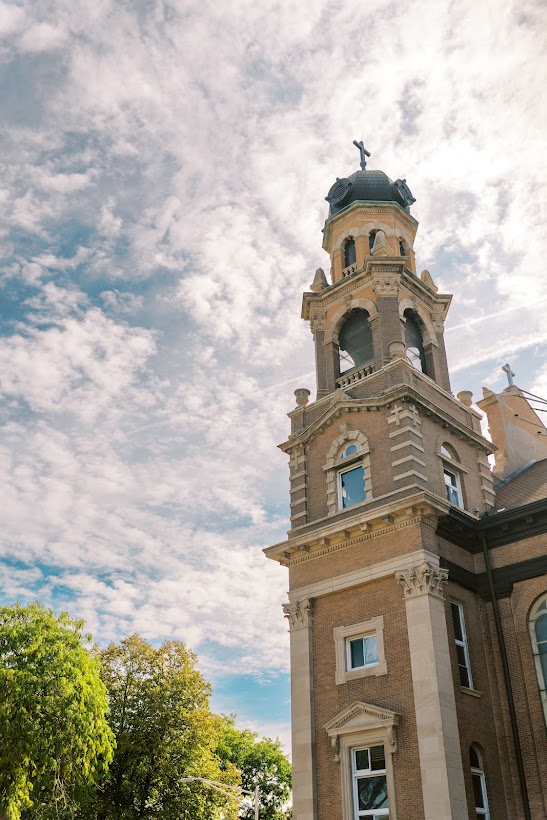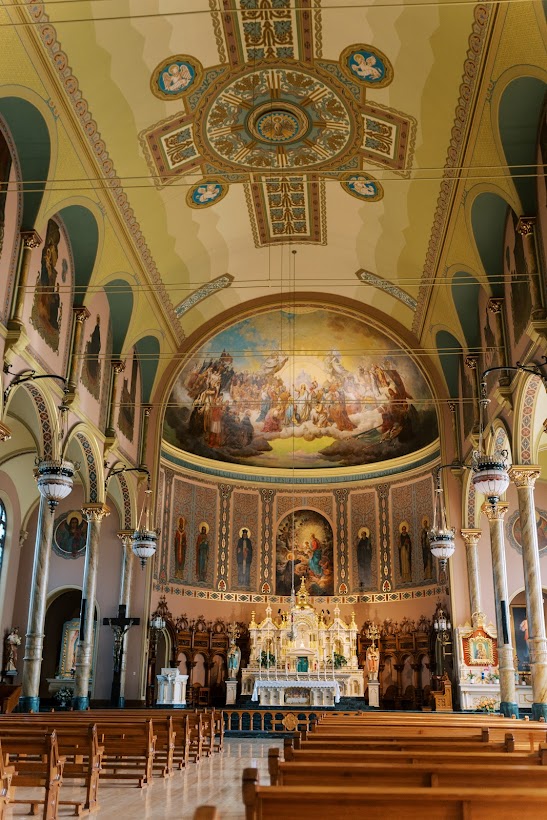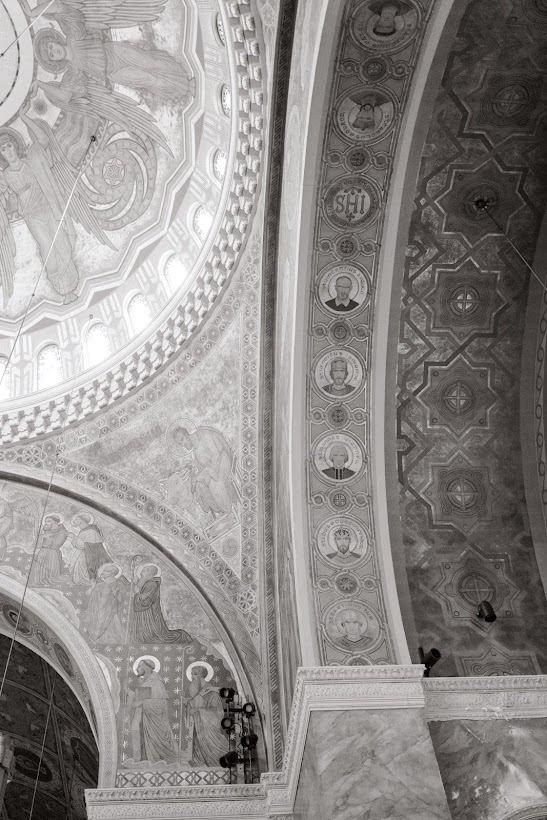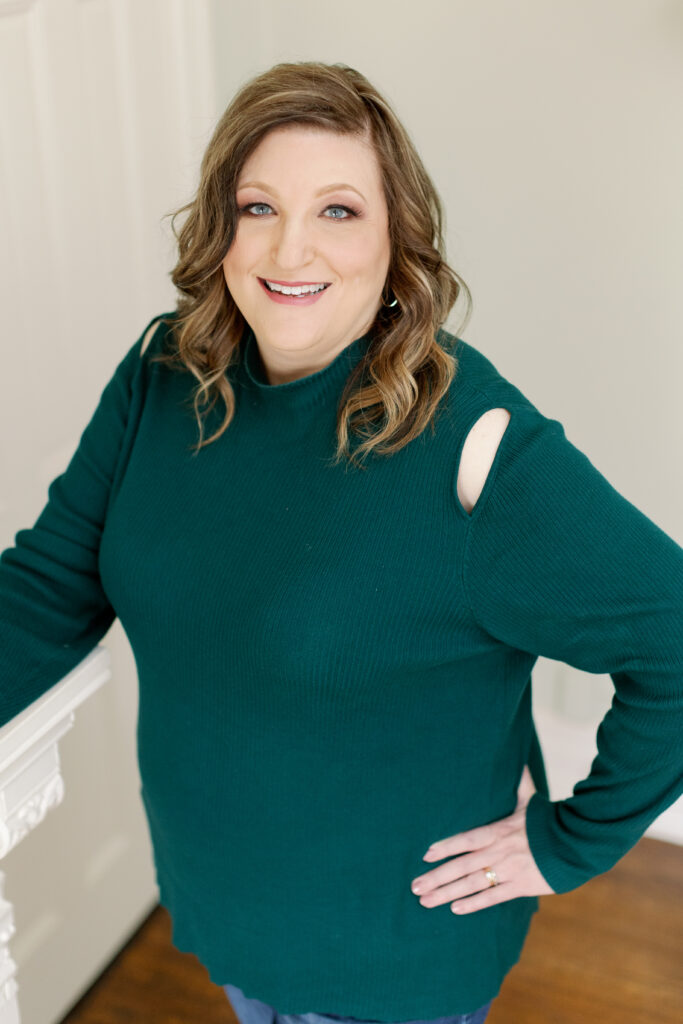


Setting a date is one of the biggest choices you’ll make for your wedding, and one of the first that you’ll need to do.
The best and biggest tip we can give you for booking a church is to scour their wedding policy! Most churches will have a typed out document that should outline the answers to most of these questions. Be sure to clarify any questions before committing to a date with a church to prevent yourself future disappointment.
Here are ten practical things to consider when booking your Church!
1 . Church access times. Some may allow you in a couple of hours before the wedding starts and others, especially those that schedule more than one wedding a day, will have your access beginning an hour before the wedding start time. Keep that in mind if being there early is important to you. Also check when everyone needs to vacate the building afterwards. This can affect the time you have for family photos in church, so you might need to make other location arrangements if you have a large family or are planning on a lot of family portraits. Sometimes the church will have a beautiful courtyard that extended family photos can be taken in, but these can be weather and season dependent.
2. Bridal Room. Is there a location for the wedding party to wait in before the wedding begins? Some churches will have designated “bridal party” and “groom and groomsmen” rooms to await the processional once you arrive at church. Sometimes this might require walking outdoors or even past some of the guests already seated in the pews. Keep that in mind if not being seen until the doors open for the bridal procession is very important to you. If there is no location to hide the bride, you may have to stay in your party bus or vehicle until the procession begins, which can be less comfortable.
3. Music. While things do vary from parish to parish, it’s generally expected that music for weddings, whether a nuptial Mass or a ceremony, be liturgically appropriate. If you have your heart set on walking down the aisle to Wagner’s Bridal Chorus (Here Comes the Bride) or a piece from a popular movie soundtrack, now is the time to get any and all clarification on that. Another thing to consider- does the church require you to use their musicians? If not, is there a bench fee for another organist/pianist? Do they provide a vocalist/choir? Can you have bagpipes?
4. Décor. Churches often have strict guidelines on this, whether it is concerning the liturgical season and what is allowed in the sanctuary and on/around the altar, or if it is due to minimizing damage, such as pew ribbons/bows and how they are attached, or safety issues, such as the use of aisle runners, flower girls tossing petals (real or silk), ring bearers carrying signs, or the use of bubbles or petals for a grand exit from church. It’s best to look at these policies and get confirmation before you start making plans with your florist or ordering supplies for DIY.
5. Wedding Party Limits. Yes, some churches do limit the number of people you can have in the wedding party. Or at least the number that can be in the procession and stand up with you for your vows. More often found with smaller churches that have limited space at the altar rail, this is definitely something you want to check on before asking all your siblings, your childhood friends, and your sorority to be a bridesmaid. Also, some will have age limits on children in the wedding party or not allow ring bearers or flower girls. This isn’t to be mean or that they don’t love children, but little ones can be overwhelmed with a wedding procession, so this is something to consider if you’ve got little ones that you plan to have as flower girls or ring bearers.
6. Dress Code for wedding party. Some churches may have a strict dress code that is enforced for the bridal party, and some may be less rigid. These guidelines can sometimes prohibit strapless wedding gowns/bridesmaids gowns, or jeans/khakis for male attendants. Before you book the church (and buy your gown), check on what the expectations are, so you’re not rushing around the week before the wedding trying to find a matching topper or shawl for yourself or your bridesmaids.
7. Limitations on what your photographer can do. If you have your heart set on angles or shots that you have seen in other Catholic weddings, make sure you ask where the church typically allows your photographer to shoot from. Will they be allowed to shoot from the choir loft? Do they need to stay out of the main aisle? Are they allowed to use flash? These things will effect how your photographer captures your ceremony.
8. Costs, and what is included in that fee. This obviously varies from parish to parish. Some churches will only allow a registered parishioner (or the adult child of a registered parishioner) to be married there. Others are completely fine with non-parishioners marrying in their church, provided at least one member of the couple is Catholic and both are free to be married in the Church. When it’s a non-parishioner, expect a much larger fee. Some churches charge a flat fee, regardless of registration status. Some require that one be registered and active for at least one year before booking a wedding (to receive the registered parishioner rate). Make sure to clarify which services are included in the fee! Are your musicians included?
9. Accommodations. If you are looking at a historical church, large cathedral, or really any building built before the mid 1900s, check on these practical details. Does the church have central Air conditioning? A lot of older churches don’t and this can be a serious concern in warmer weather. How many easily accessible restrooms are there in the church? Where are the handicap entrances? How much parking is readily available?
10. Do you have an onsite church coordinator and how involved are they? Most churches will have someone from the church to assist you and keep things running smoothly, but their levels of involvement can vary. Sometimes a church may just have someone that unlocks the doors and locks them again at the end, in which case you may need additional help to organize the ceremony.
Bonus tip: “What are the chances that the church will undergo construction at the time of my wedding?” Odds are good that your church won’t undergo construction, but occasionally miscommunications happen. Often the staff or volunteers that handle weddings are not the same individuals that plan out church maintenance. In the 100+ weddings we’ve done as coordinators, seven of those wedding ended up having church construction that was not originally planned. It never hurts to ask!
Joy Foster is a wedding planner with Simply Sacred Events, an Indianapolis based wedding planning service dedicated to Catholic weddings.
Looking for someone or something specifc?
Search By Category
Photographers • Videographers • Photo + Video team • Florists • Wedding Coordinators • PHysical Products • DJs/Musicians • Rentals • Stationery • Marriage Preparation Resources • Venues
Search By Region
Vendors are sorted by their home state but many offer to travel. Expand your search by searching regions.
West Coast • Rocky Mountain • Southwest • Great Plains • Midwest • East South Central • South • East Coast • New England
